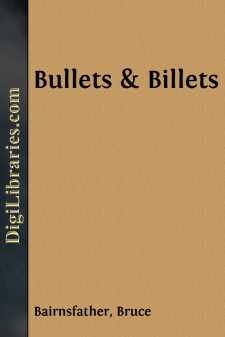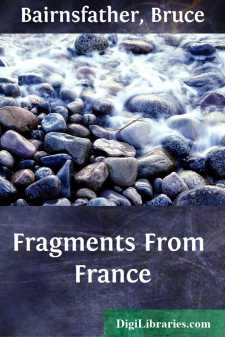Categories
- Antiques & Collectibles 13
- Architecture 36
- Art 48
- Bibles 22
- Biography & Autobiography 813
- Body, Mind & Spirit 142
- Business & Economics 28
- Children's Books 15
- Children's Fiction 12
- Computers 4
- Cooking 94
- Crafts & Hobbies 4
- Drama 346
- Education 46
- Family & Relationships 57
- Fiction 11828
- Games 19
- Gardening 17
- Health & Fitness 34
- History 1377
- House & Home 1
- Humor 147
- Juvenile Fiction 1873
- Juvenile Nonfiction 202
- Language Arts & Disciplines 88
- Law 16
- Literary Collections 686
- Literary Criticism 179
- Mathematics 13
- Medical 41
- Music 40
- Nature 179
- Non-Classifiable 1768
- Performing Arts 7
- Periodicals 1453
- Philosophy 64
- Photography 2
- Poetry 896
- Political Science 203
- Psychology 42
- Reference 154
- Religion 513
- Science 126
- Self-Help 84
- Social Science 81
- Sports & Recreation 34
- Study Aids 3
- Technology & Engineering 59
- Transportation 23
- Travel 463
- True Crime 29
Bruce Bairnsfather
Bruce Bairnsfather was a British cartoonist and writer, best known for his World War I-era cartoons featuring the character "Old Bill," a grizzled soldier with a walrus mustache. His most famous work, "Fragments from France," is a collection of humorous and poignant wartime cartoons that captured the experiences of soldiers in the trenches. Bairnsfather's depictions of life during the war resonated with both troops and civilians, making him a beloved figure. After the war, he continued to work as an illustrator, author, and stage writer, although none of his later work achieved the same level of fame.
Author's Books:
Sort by:
CHAPTER I LANDING AT HAVRE—TORTONI'S—FOLLOWTHE TRAM LINES—ORDERS FOR THE FRONT Gliding up the Seine, on a transport crammed to the lid with troops, in the still, cold hours of a November morning, was my debut into the war. It was about 6 a.m. when our boat silently slipped along past the great wooden sheds, posts and complications of Havre Harbour. I had spent most of the twelve-hour trip...
more...
FOREWORDBy the Editor of "The Bystander."HEN Tommy went out to the great war, he went smiling, and singing the latest ditty of the halls. The enemy scowled. War, said his professors of kultur and his hymnsters of hate, could never be waged in the Tipperary spirit, and the nation that sent to the front soldiers who sang and laughed must be the very decadent England they had all along denounced...
more...



